-da0801079a650a2e.jpeg)
Beagle Lifespan Guide: How Long Do Beagles Live & Ways to Extend It
On average, a healthy Beagle lives between 12 to 15 years. While this makes them a relatively long-lived breed compared to larger dogs, their longevity depends heavily on genetics, weight management, and preventative care. Some Beagles can even reach their late teens with the right lifestyle, with the oldest recorded Beagle living to be 27 years old. In this guide, we’ll break down the Beagle life cycle, compare their age to human years, and share expert tips to help your scent hound stay by your side for as long as possible.

Blog Post Contents
Beagle Lifespan: How Long Do Beagles Live & What Affects Their Longevity?
Picture this: You're cuddled up with your Beagle on a Sunday morning, watching those soulful brown eyes gaze up at you with pure adoration. Then it hits you – that inevitable question every dog lover asks: "How long do we have together?" Understanding Beagle lifespan isn't just about numbers on a chart. It's about maximizing every precious moment with your four-legged family member.
After working with hundreds of Beagle families over the past decade, I've seen firsthand what makes the difference between a Beagle living 10 years versus 15 years. The good news? You have more control over your dog's longevity than you might think. This comprehensive guide will show you exactly how to help your Beagle live their longest, healthiest, happiest life possible.
Beagle lifespan varies significantly based on genetics, care, and lifestyle factors that we'll explore together. Whether you're a first-time Beagle parent or you've shared your life with these amazing dogs for years, this guide provides the insider knowledge you need to be your Beagle's best health advocate.
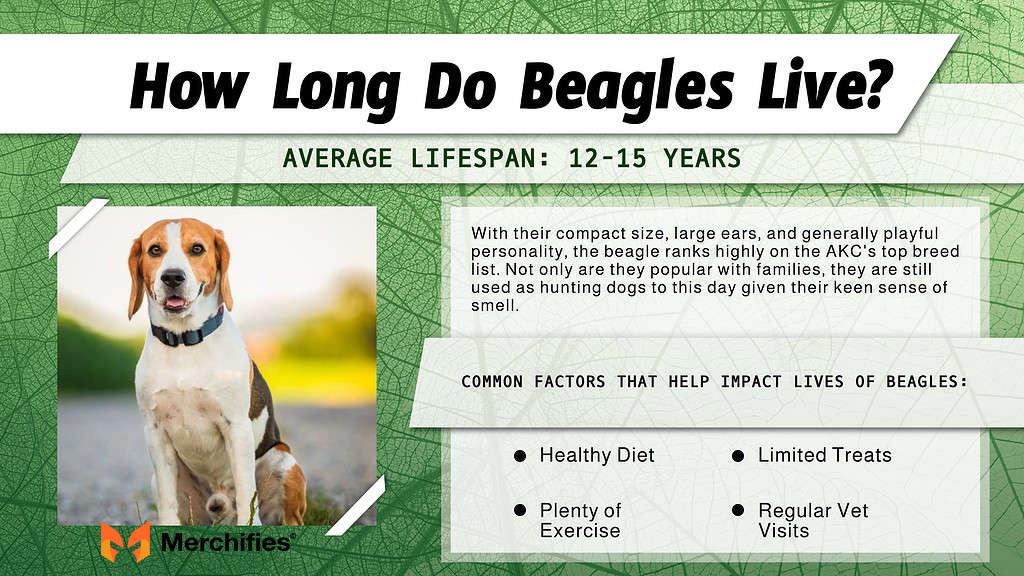
Beagle Age Calculator: Dog Years to Human Years
Understanding your Beagle's life stage is crucial for their care. A 10-year-old Beagle isn't just "old"—they are a distinguished senior equivalent to a human in their 60s.
Beagle Age Conversion Chart
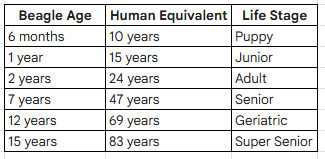
Is your Beagle officially entering the "Senior Club"? Their muzzle might be turning grey, but their heart is as gold as ever. Celebrate their longevity and that distinguished look.
Vintage 2026 - Limited Edition Beagle
$12.79
$22.79
43% off$12.79
$22.79
43% off$12.79
$22.79
43% off$12.79
$22.79
43% off$12.79
$22.79
43% off$12.79
$22.79
43% off$12.79
$22.79
43% off$12.79
$22.79
43% off$12.79
$22.79
43% off$12.79
$22.79
43% off$12.79
$22.79
43% off$12.79
$22.79
43% off$12.79
$22.79
43% off$12.79
$22.79
43% off$12.79
$22.79
43% off$12.79
$22.79
43% off$12.79
$22.79
43% off$12.79
$22.79
43% off$12.79
$22.79
43% off$12.79
$22.79
43% offUnderstanding the Average Beagle Lifespan
The straightforward answer is that the typical Beagle lifespan ranges from 10 to 15 years. This is a pretty solid lifespan for a small-to-medium-sized dog. From my years working with different breeds, I've found this range to be consistently accurate.
Beagle lifespan statistics show encouraging longevity compared to many purebred dogs. Medium-sized dogs like Beagles typically enjoy longer lives than their giant breed counterparts, who often face shorter lifespans due to accelerated aging processes and increased health complications.
Of course, this is just an average. Some Beagles sadly don't reach 10, while a lucky few push past 15. When it comes to the Beagle lifespan male vs. female debate, there's really no significant difference. You might hear that females live a touch longer, but the gap is negligible.
What makes a bigger difference is their genetic makeup. For instance, the average lifespan of a beagle mix can vary wildly. A Beagle mixed with a longer-living breed might get a few bonus years, but it could also inherit health issues from both sides.
Understanding Beagle lifespan expectations helps you plan for veterinary care, insurance needs, and the emotional journey of sharing your life with these incredible companions. Realistic expectations also help you recognize when your Beagle is entering their senior years and needs adjusted care.
Factors Influencing a Beagle's Lifespan
A dog's longevity isn't just left to chance. Several key factors play a massive role in Beagle lifespan, and the good news is, you have a lot of control over them.
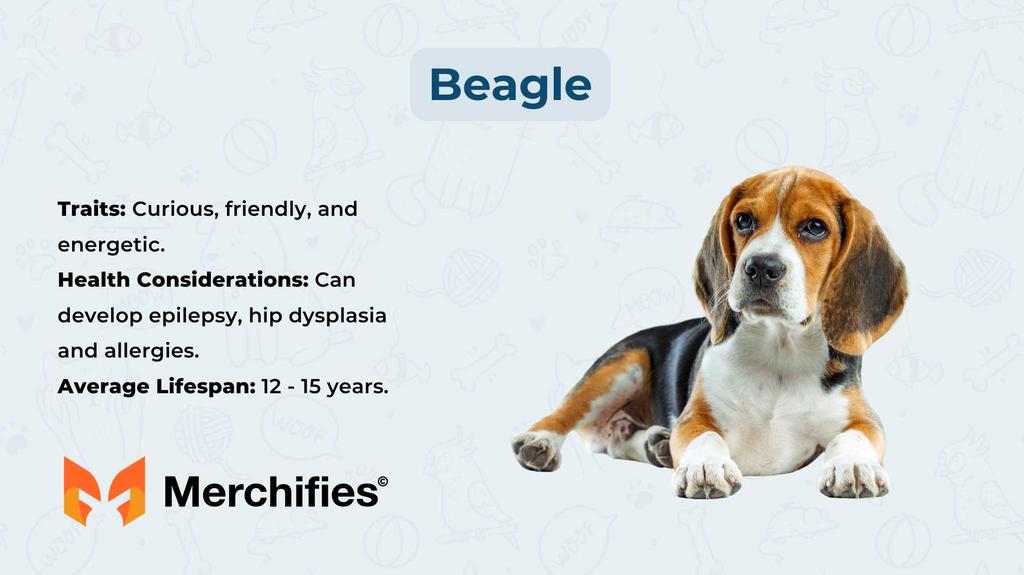
Multiple interconnected elements determine how long your Beagle will live. Understanding these factors empowers you to make informed decisions that can literally add years to your dog's life while improving their quality of life throughout those years.
Genetics and Breed History
First, let's talk about what you can't control: canine genetics. Beagles, like all purebreds, have a genetic history that makes them prone to certain conditions affecting Beagle lifespan. This is just part of the package with the breed.

Reputable breeders work hard to screen for these issues, which is why choosing your breeder carefully is your first step in ensuring good Beagle health and optimal Beagle lifespan. Health testing for breeding dogs helps identify genetic markers that could impact longevity.
The Beagle's hunting heritage influences their genetics positively in many ways. These dogs were bred for endurance, stamina, and overall robustness. However, centuries of selective breeding also concentrated certain genetic predispositions that responsible owners need to understand and monitor.
Genetic factors affecting Beagle lifespan include inherited diseases like epilepsy, hip dysplasia, and certain cancers. While you can't change your dog's DNA, understanding their genetic risks helps you work proactively with veterinarians to catch problems early.
Diet and Nutrition
Now for what you can control. A Beagle's diet is everything when it comes to Beagle lifespan. Honestly, their noses get them into trouble, but their stomachs are where the real danger lies. They are notorious food thieves and will eat until they pop.
This makes them incredibly prone to obesity, and an overweight Beagle lifespan is almost always shorter. Extra pounds put a huge strain on their heart and joints, significantly impacting longevity and quality of life.
I've seen it time and time again: a chubby Beagle that moves slow and seems "lazy" is often just a dog struggling under excess weight. A balanced Beagle diet rich in high-quality protein and low in empty-filler calories is non-negotiable for optimal Beagle lifespan.
Stick to measured meals and go easy on the treats. Your vet can help you figure out the perfect portion size for your individual dog's Beagle lifespan optimization. Age-appropriate nutrition becomes increasingly important as dogs enter their senior years.
Proper nutrition directly correlates with Beagle lifespan through multiple pathways. Quality food supports immune system function, maintains healthy organ systems, and provides the building blocks for cellular repair and regeneration throughout your dog's life.
Exercise and Activity Level
Tied directly to diet is the need for proper Beagle exercise, which significantly impacts Beagle lifespan. These are scent hounds, bred to run for miles. They have energy to burn, and regular exercise is crucial for longevity.
A bored Beagle is a destructive Beagle, but a well-exercised one is a happy, healthy companion with improved Beagle lifespan potential. Mental stimulation through exercise also contributes to cognitive health as dogs age.

Aim for at least 30 to 60 minutes of solid walking or playtime each day for optimal Beagle lifespan. This keeps their weight in check, their minds sharp, and their joints healthy. This isn't just a suggestion; it's a core need for the breed.
Regular exercise improves Beagle lifespan by maintaining cardiovascular health, supporting joint mobility, preventing obesity, and providing mental enrichment that keeps dogs emotionally balanced throughout their lives.
Healthcare and Veterinary Care
Proactive veterinary care is your secret weapon for maximizing Beagle lifespan. Think of your vet as your partner in your dog's health journey, working together to identify and prevent problems before they become serious.
Regular check-ups, staying on top of vaccinations, and consistent flea, tick, and heartworm prevention are critical pillars of canine health that directly influence Beagle lifespan. Preventive care costs far less than treating advanced diseases.
Catching a problem early can literally add years to your dog's Beagle lifespan. Don't wait for something to be wrong. Annual wellness exams are one of the best investments you can make in your Beagle's longevity.
Veterinary partnerships for Beagle lifespan optimization should include regular blood work, dental cleanings, and age-appropriate screening for breed-specific conditions. Early intervention often makes the difference between manageable conditions and life-threatening diseases.
Environmental Factors
Finally, their environment matters significantly for Beagle lifespan. A question that comes up is, how long do indoor Beagles live? The answer is almost always longer than outdoor-only dogs, contributing to extended Beagle lifespan.
Inside, they're safe from cars, predators, poisons, and extreme weather – all factors that can negatively impact Beagle lifespan. A safe and low-stress home is fundamental to a long life and optimal longevity.
Environmental safety for Beagle lifespan includes secure fencing, proper identification tags, and household hazard awareness. These seemingly small details can prevent accidents that might otherwise shorten your dog's life unexpectedly.
Stress reduction through consistent routines, safe spaces, and positive training methods also contributes to improved Beagle lifespan by supporting immune system function and overall emotional well-being throughout your dog's life.
Common Health Problems Affecting Beagles and Their Lifespan
Beagles are generally robust, but there are specific Beagle diseases to be aware of that can significantly impact Beagle lifespan. Knowing these helps you spot signs early and take proactive measures.

Understanding breed-specific health challenges empowers owners to work with veterinarians on prevention strategies that can extend Beagle lifespan while maintaining quality of life throughout the aging process.
One of the most frequent questions under the umbrella of "People Also Ask" is, what is the main cause of death of Beagles? For most Beagles that live a full Beagle lifespan, the cause is often cancer or heart failure in their senior years, which is common across many dog breeds.
However, managing chronic conditions is key to reaching that optimal Beagle lifespan. Early detection and treatment can help dogs live comfortably with many age-related conditions for years beyond initial diagnosis.
Some common issues affecting Beagle lifespan include:
- Hip Dysplasia in Beagles: A malformation of the hip joint that can lead to arthritis and mobility issues. Keeping your dog at a healthy weight dramatically helps manage this condition and preserve Beagle lifespan.
- Epilepsy in Beagles: This is a neurological condition that causes seizures. While scary, it can often be managed effectively with medication without significantly impacting Beagle lifespan.
- Hypothyroidism in Beagles: An underactive thyroid gland that can cause weight gain, lethargy, and skin issues. It's easily treatable with a daily pill and doesn't typically shorten Beagle lifespan when properly managed.
The "Scent Hound" Factor: Obesity and Lifespan
The biggest threat to a Beagle's lifespan is often their own appetite. Beagles are "nose with four legs," driven by an incredible sense of smell that leads them to any crumb of food. Obesity can reduce a Beagle's life expectancy by up to 2 years due to strain on their heart and joints.
Keeping them slim is a challenge when they look at you with those pleading "puppy dog eyes" acting like they haven't eaten in weeks. We know the struggle is real!
Does your Beagle act like a starving food critic 5 minutes after dinner? You're not alone. It’s the classic Beagle personality trait that we all love (and dread).
Beagle Food Inspector
$20.79
$30.79
32% off$20.79
$30.79
32% off$20.79
$30.79
32% off$20.79
$30.79
32% off$20.79
$30.79
32% off$20.79
$30.79
32% off$20.79
$30.79
32% off$20.79
$30.79
32% off$20.79
$30.79
32% off$20.79
$30.79
32% off$20.79
$30.79
32% off$20.79
$30.79
32% off$20.79
$30.79
32% off$20.79
$30.79
32% offCommon Health Issues & Leading Causes of Death
According to veterinary data, the leading causes of death for Beagles include:
- Cancer: Lymphoma and bone cancer are common in older dogs.
- Trauma: Because they are scent hounds, Beagles often catch a scent and run off, leading to traffic accidents. Always keep them on a leash!
- Heart Disease: Often exacerbated by obesity.
Note: Early detection is key. We recommend vet checkups twice a year once your Beagle turns 8.
Can Beagles Live 20 Years?
We all dream of our dogs living forever. So, can a Beagle hit the big 2-0 and achieve an exceptional Beagle lifespan? While technically possible—there are rare, record-breaking exceptions—it is extremely uncommon for Beagle lifespan to reach two decades.

It's not something an owner should expect from typical Beagle lifespan statistics. A healthy, happy life reaching 14 or 15 is a wonderful goal and a huge achievement that represents excellent care and favorable genetics.
Exceptional Beagle lifespan cases reaching 18-20 years usually involve dogs with superior genetics, exceptional veterinary care, optimal nutrition throughout life, and often a bit of luck with avoiding serious accidents or diseases.
While hoping for maximum Beagle lifespan, it's healthier emotionally to focus on quality over quantity. A 12-year-old Beagle who's lived an active, loved, healthy life has experienced a full Beagle lifespan regardless of statistical averages.
Is 15 Old for a Beagle?
Yes, absolutely. A 15-year-old Beagle is well into their golden years and has achieved an excellent Beagle lifespan. At this stage, they've earned their senior status and deserve special recognition for their longevity.
Think of it as being in their late 70s or 80s in human years when considering Beagle lifespan equivalencies. They'll need more specialized senior dog care, including softer food, more comfortable beds, and shorter, more gentle walks.
A 15-year Beagle lifespan represents success in dog ownership. These senior dogs often develop endearing personality changes, becoming more cuddly, wise, and appreciative of quiet companionship with their families.
Senior Beagle lifespan care focuses on comfort, pain management, and quality time. Many owners find these final years incredibly rewarding as their relationship with their dog deepens and becomes more precious.
Maximizing Your Beagle's Lifespan: Actionable Advice
This is where you can make the biggest difference in your Beagle lifespan outcomes. Here is a practical checklist based on years of experience with successful Beagle longevity:
Implementing these Beagle lifespan optimization strategies consistently throughout your dog's life creates compound benefits that become increasingly important as dogs age and face greater health challenges.
1. Watch Their Weight: Control portions and limit treats. This is the single most important thing you can do for Beagle lifespan extension. Obesity shortens lives significantly.
2. Feed High-Quality Food: Avoid corn-heavy fillers. Look for meat as the first ingredient to support optimal Beagle lifespan through superior nutrition.
3. Prioritize Daily Exercise: A tired Beagle is a good Beagle. Keep them moving for cardiovascular health and Beagle lifespan benefits.
4. Practice Good Dental Hygiene: Brush their teeth or provide dental chews. Bad teeth can lead to heart and kidney disease that shortens Beagle lifespan.
5. Never Skip a Vet Visit: Stick to your annual check-up schedule for Beagle lifespan optimization. It's for prevention, not just problems.
6. Train Them: A well-trained Beagle is a safer Beagle. A solid "come" command can be a lifesaver that protects Beagle lifespan

Just for context, how does the Beagle lifespan compare? A Golden Retriever typically lives 10-12 years, while a Dachshund often lives a bit longer, from 12-16 years. Beagles fit right into that healthy average for popular companion breeds.
Achieving Maximum Beagle Lifespan Through Dedicated Care
Ultimately, the Beagle lifespan of 10 to 15 years is a gift that requires active participation from devoted owners. While genetics sets the foundation, the choices you make every single day—in their food bowl, on their leash, and at the vet's office—are what build the house.
You have the power to make those Beagle lifespan years as healthy and vibrant as possible through consistent, informed care decisions. The investment in proper nutrition, exercise, healthcare, and safety pays dividends in both quantity and quality of life.
Beagle lifespan success stories consistently involve owners who prioritize preventive care over reactive treatment, maintain healthy weight throughout their dog's life, and develop strong partnerships with veterinary professionals who understand the breed's specific needs.
Remember that maximizing Beagle lifespan isn't just about adding years—it's about ensuring those years are filled with joy, comfort, and the special bond that makes the human-dog relationship so rewarding for both species.
The journey of sharing your life with a Beagle, regardless of their individual Beagle lifespan, creates memories and experiences that last far beyond their physical presence. Every day of proper care is an investment in that precious relationship.
To show your love for your adorable Beagle, check out our unique collection of Beagle T Shirts.
What's your experience with Beagle lifespan? Share your Beagle's age and your best tips for a long life in the comments below! And if you ever have a health concern, your first call should always be to a trusted veterinarian.

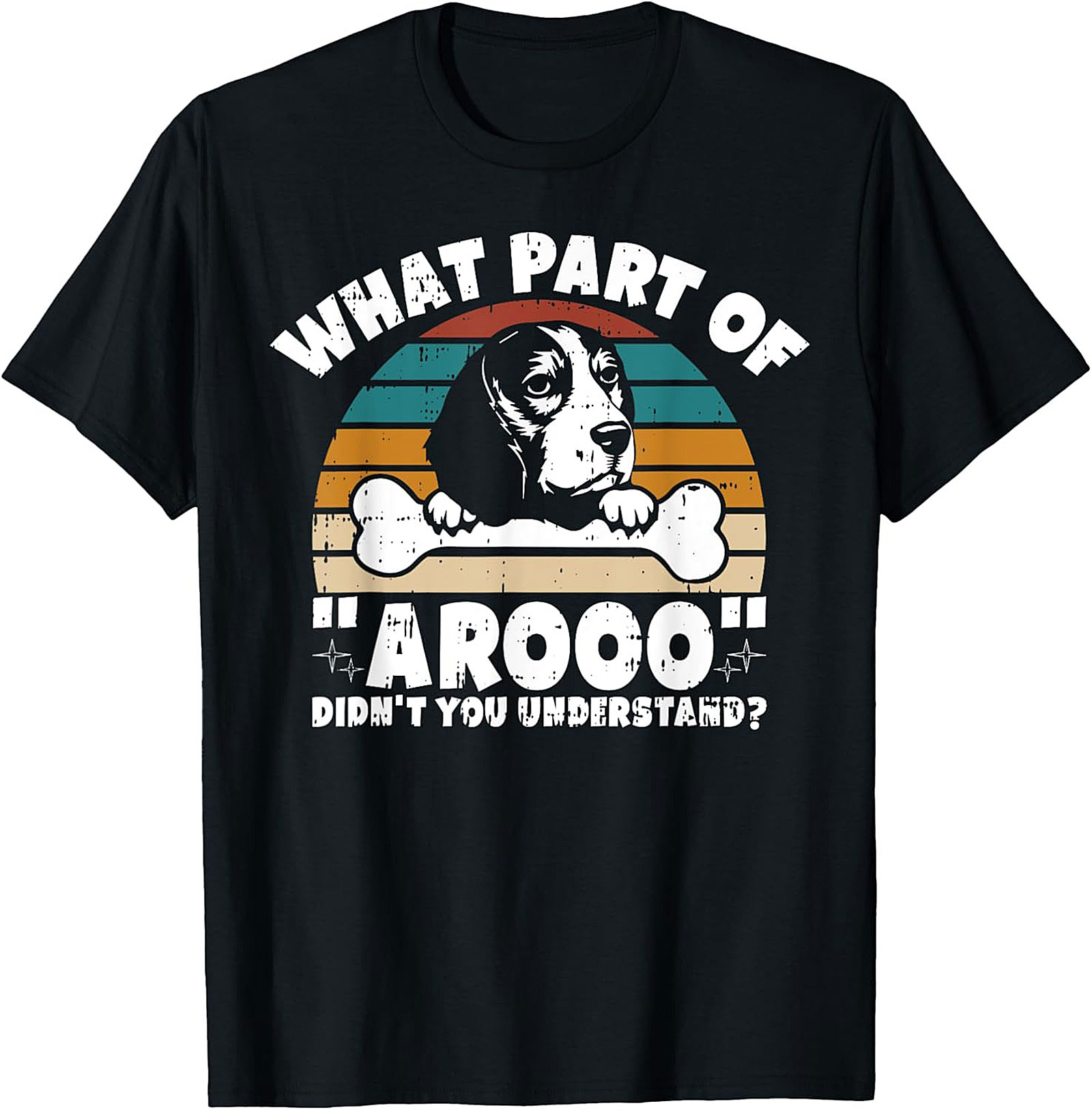
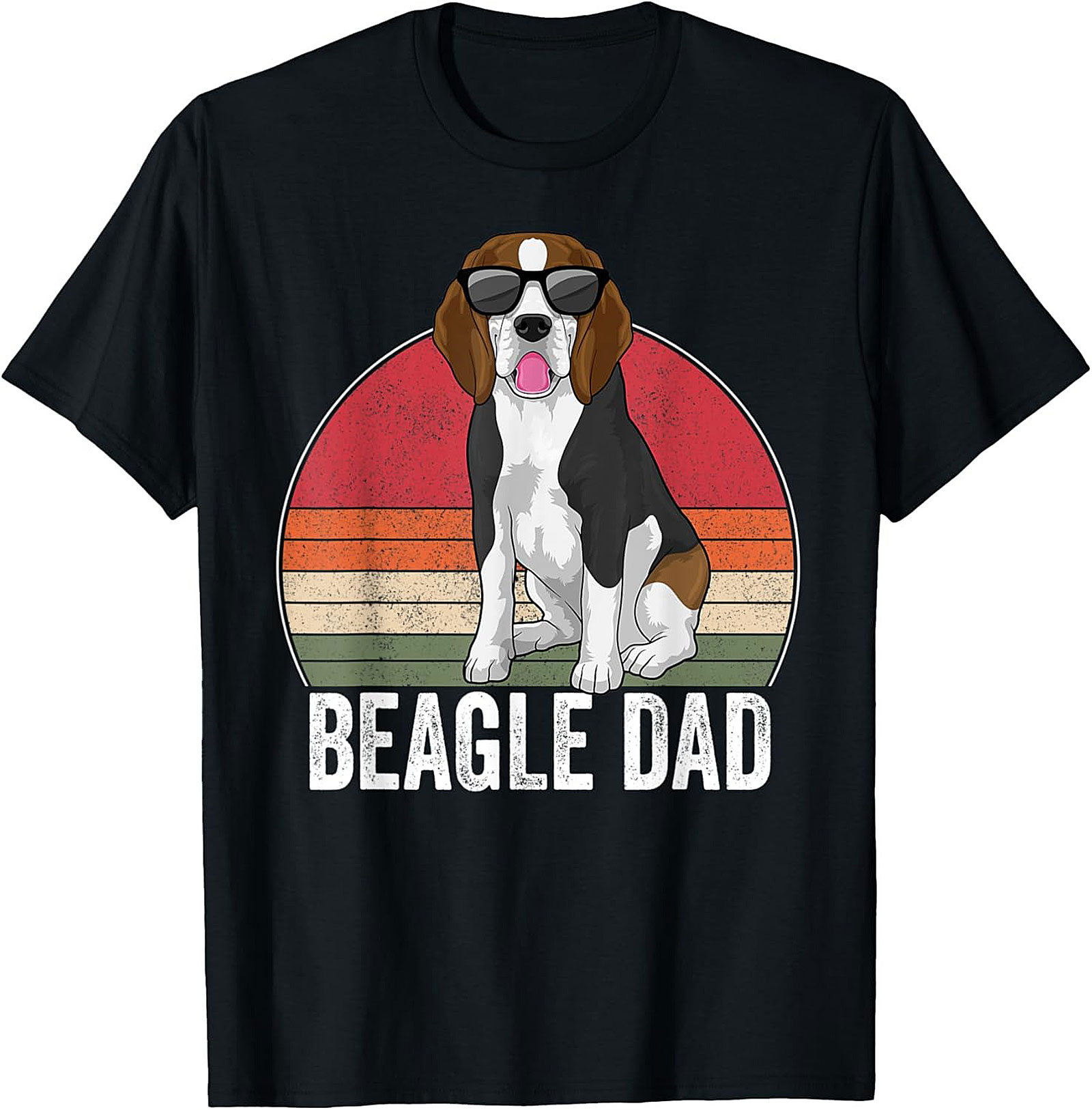

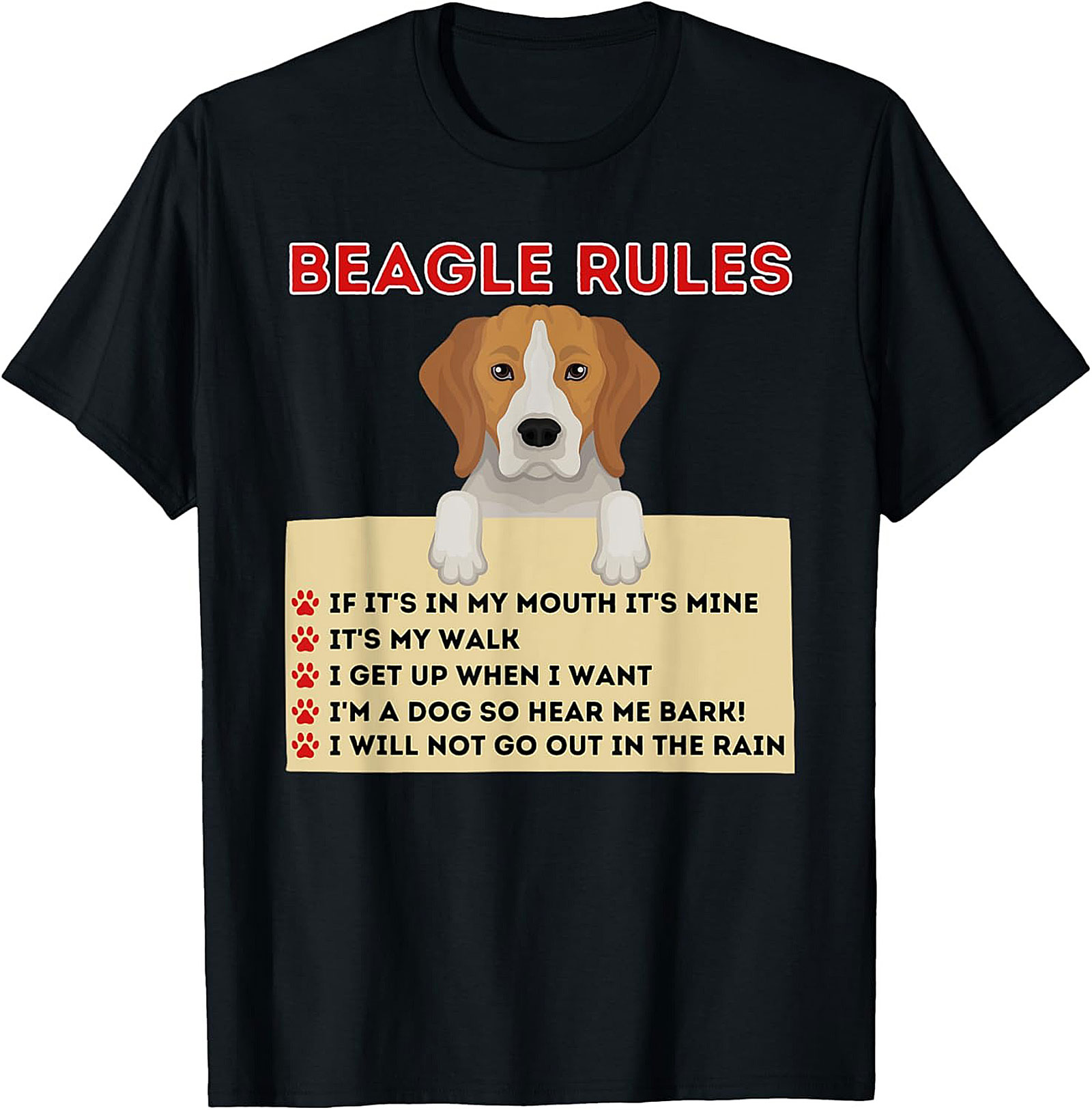




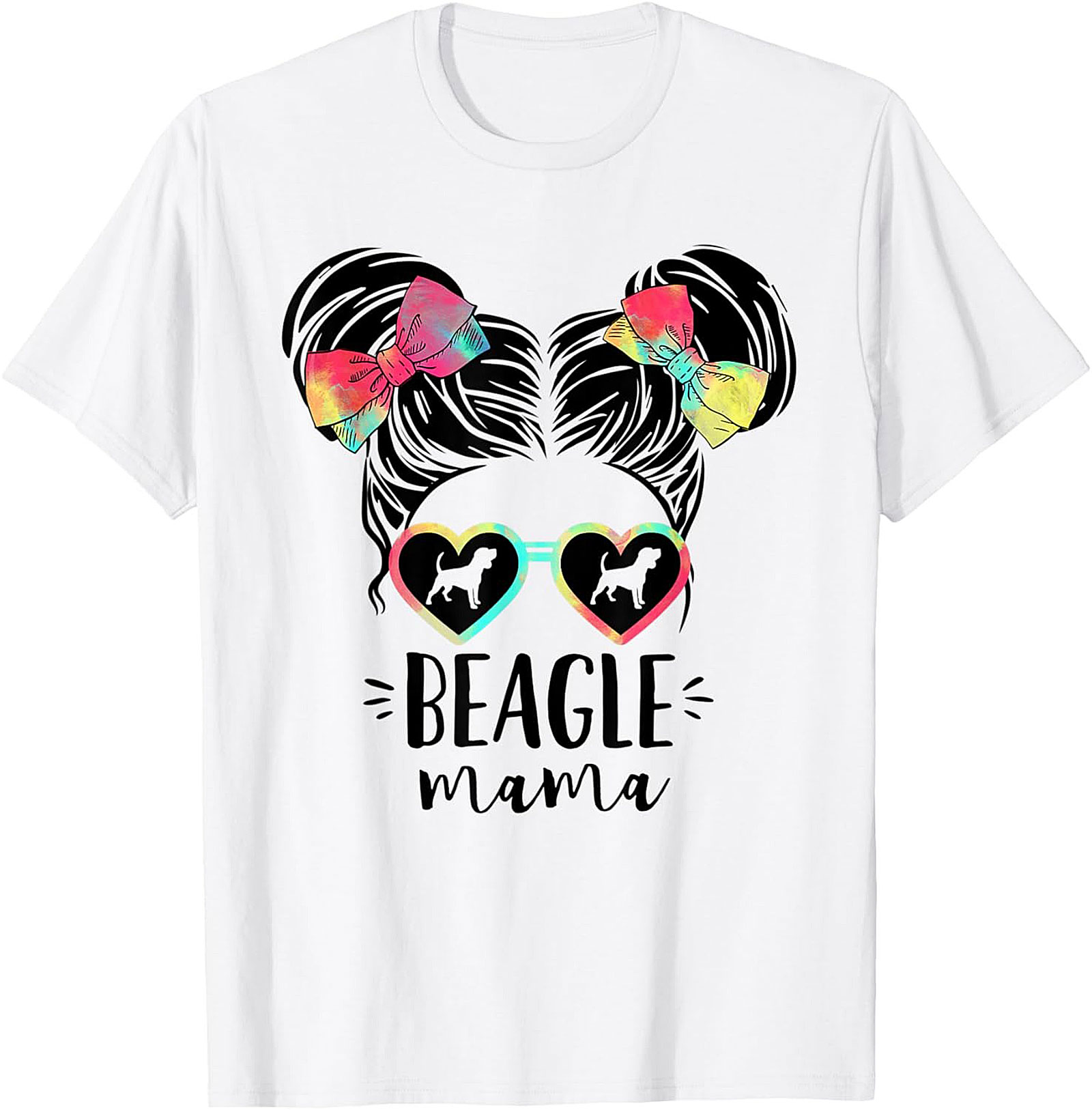

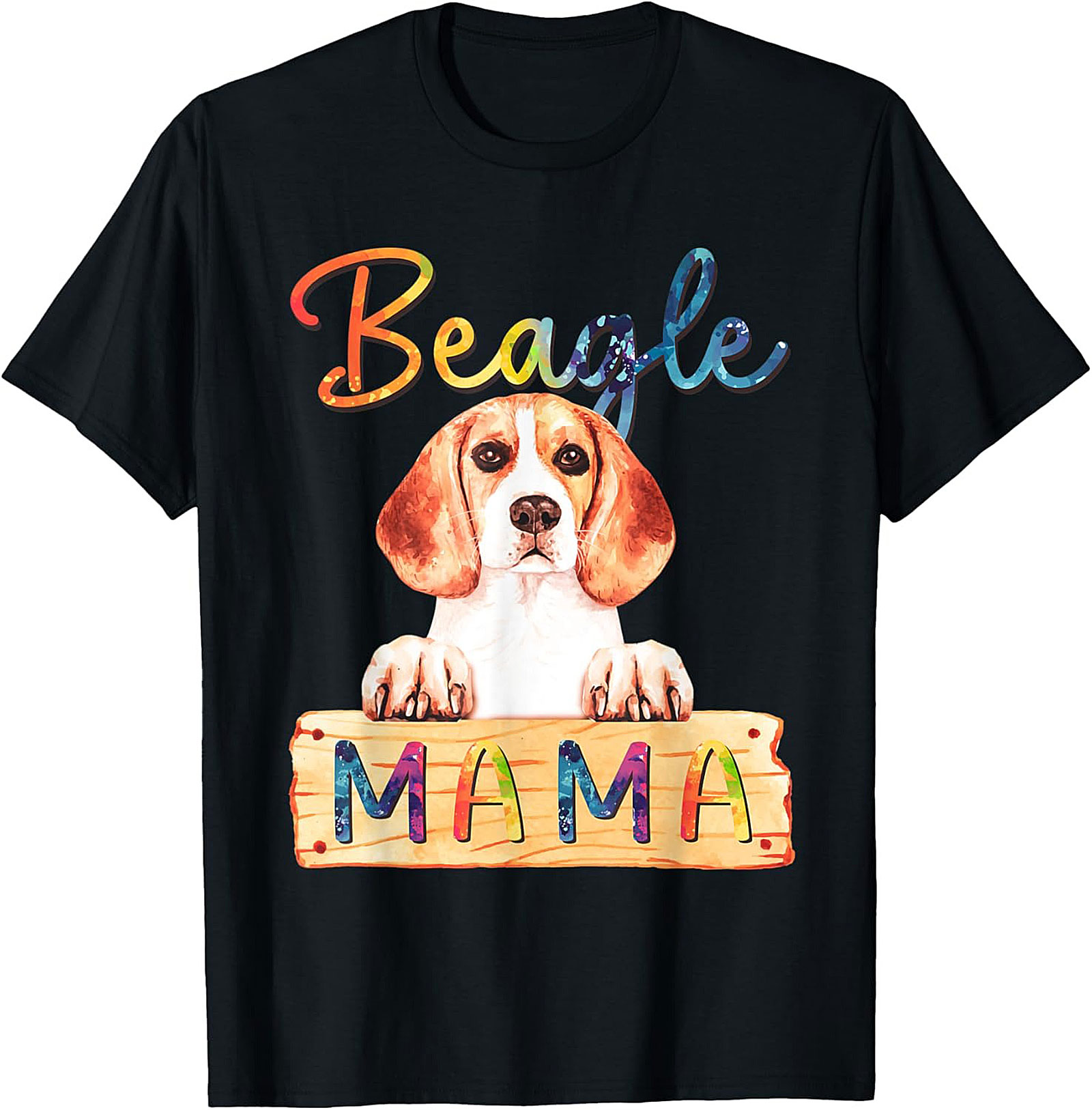
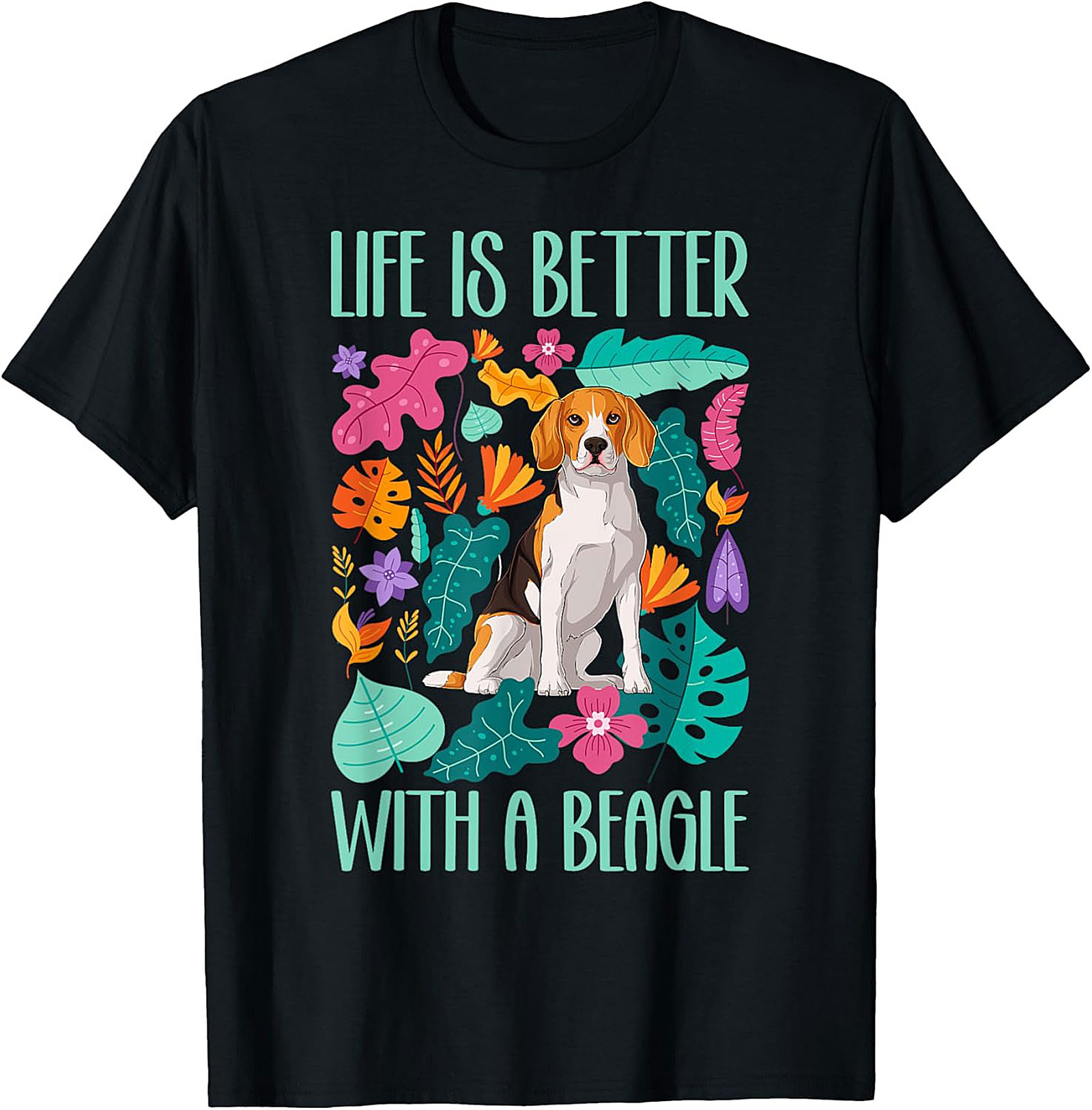
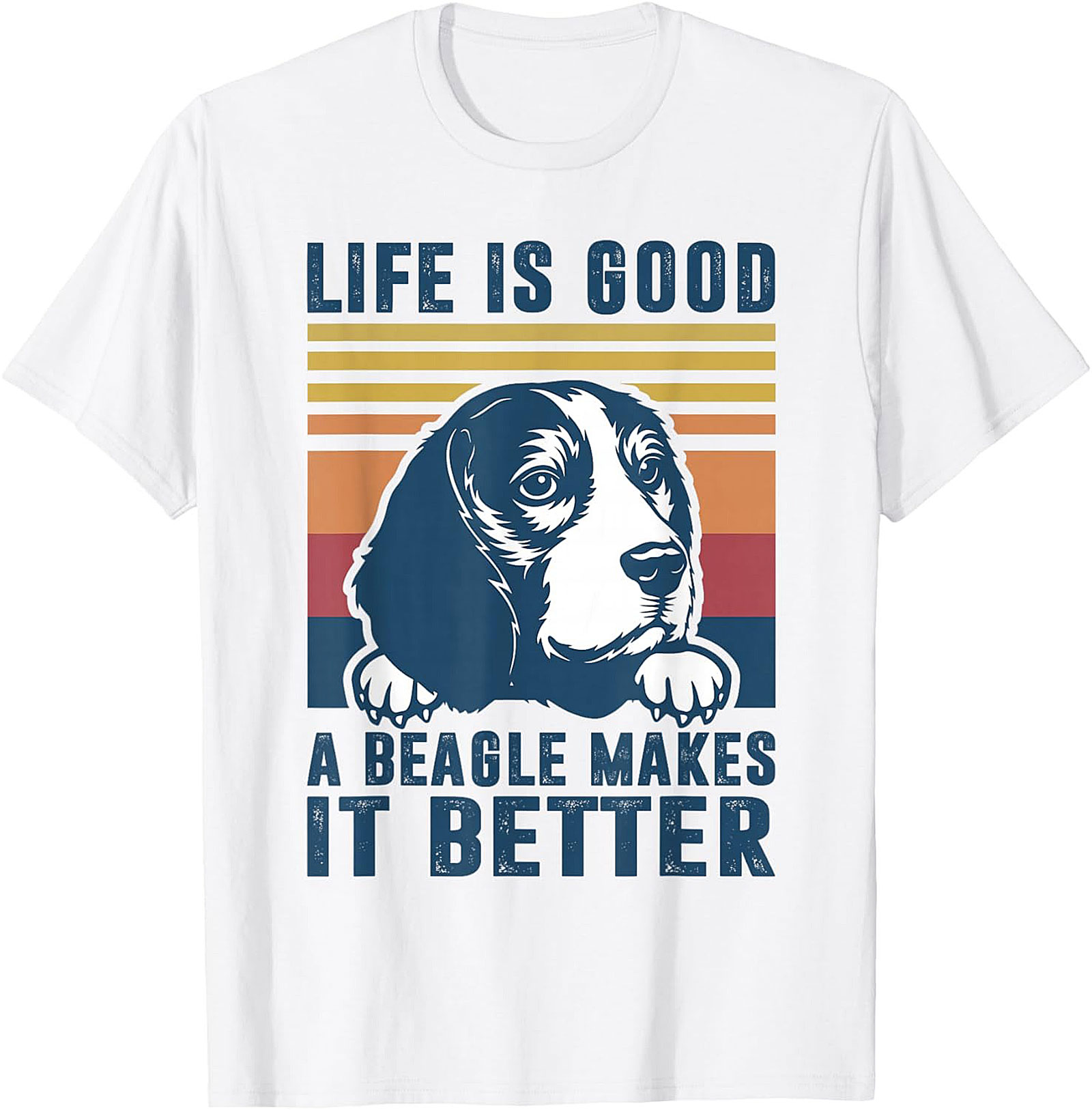


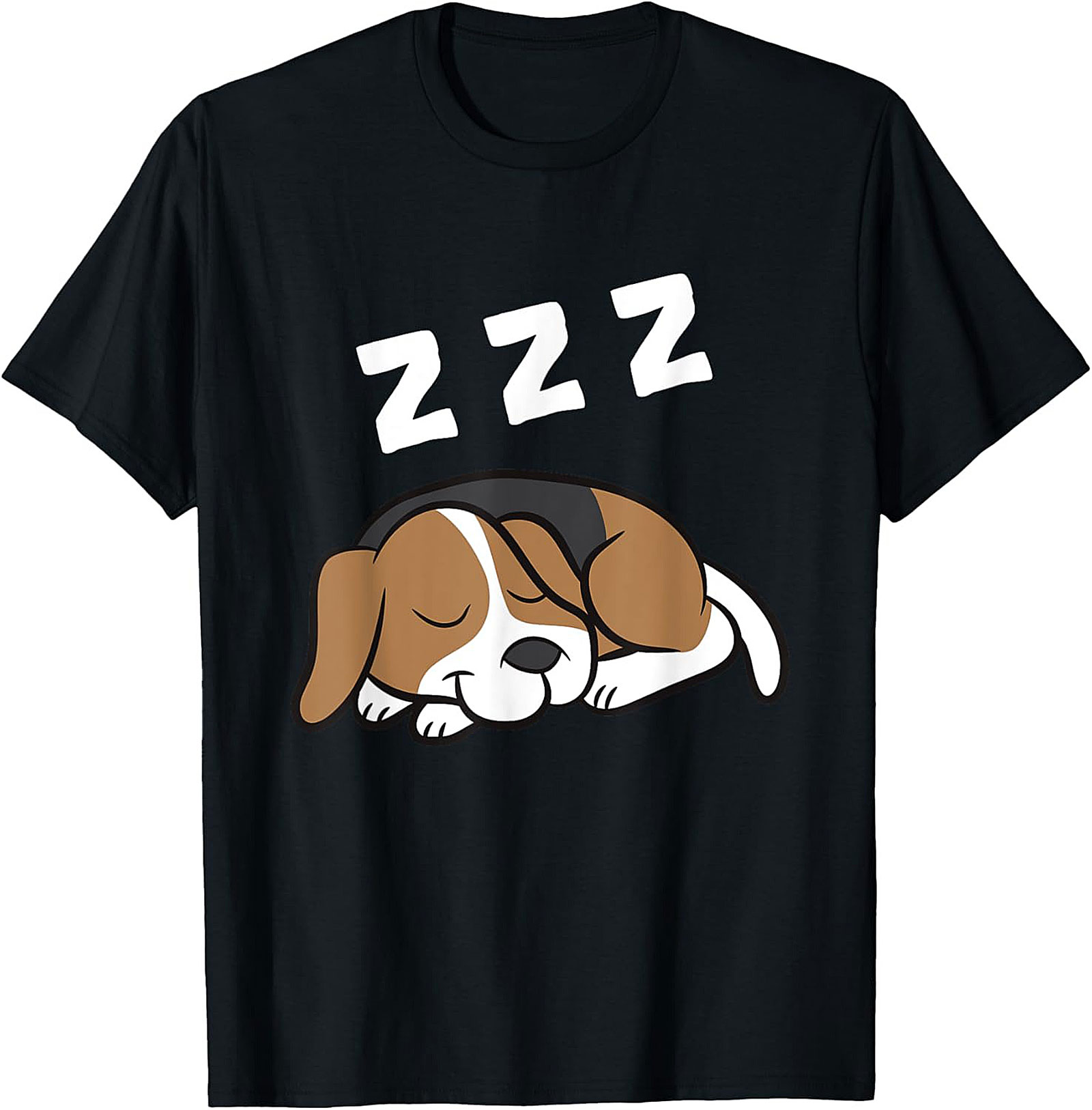

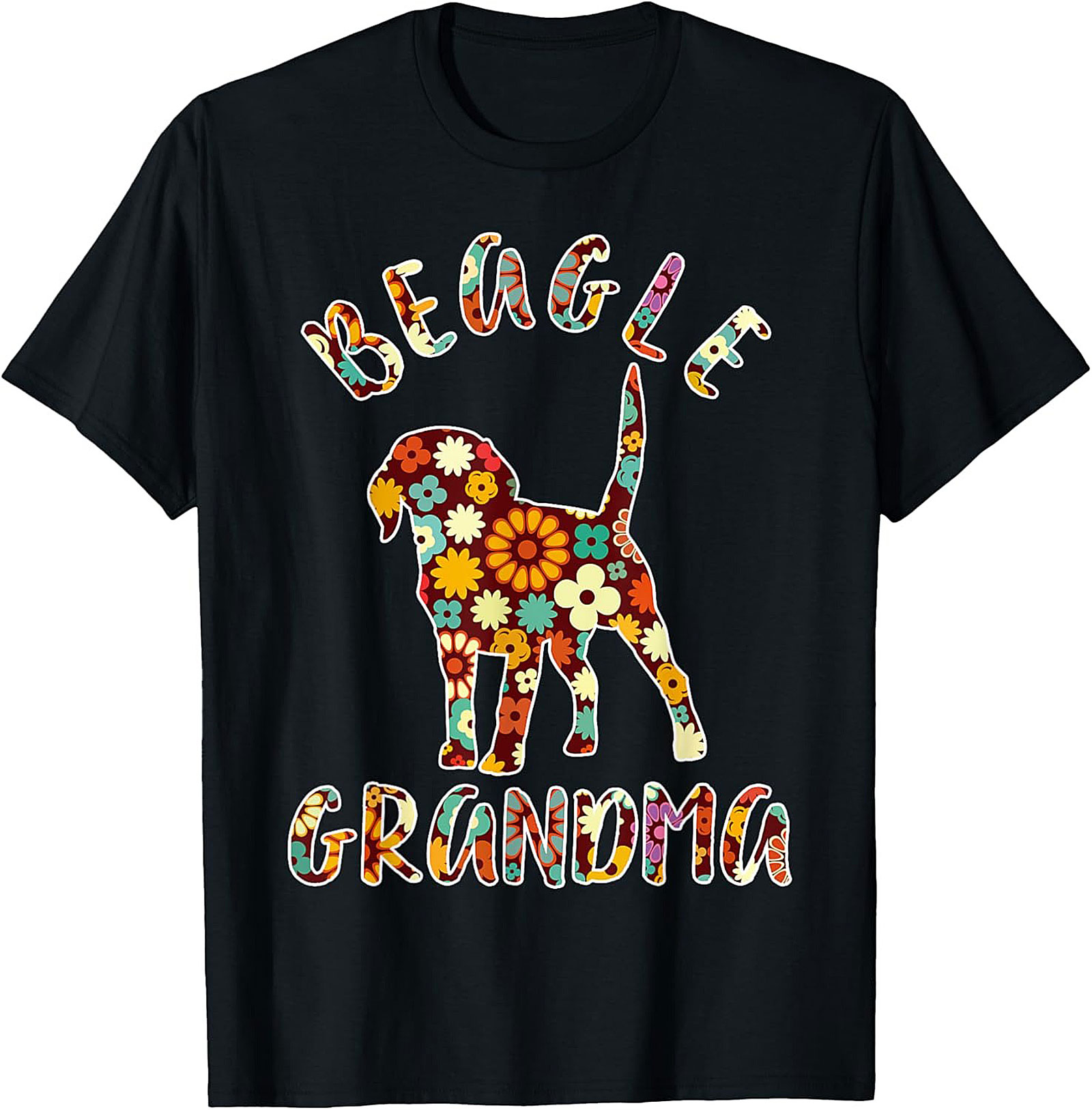


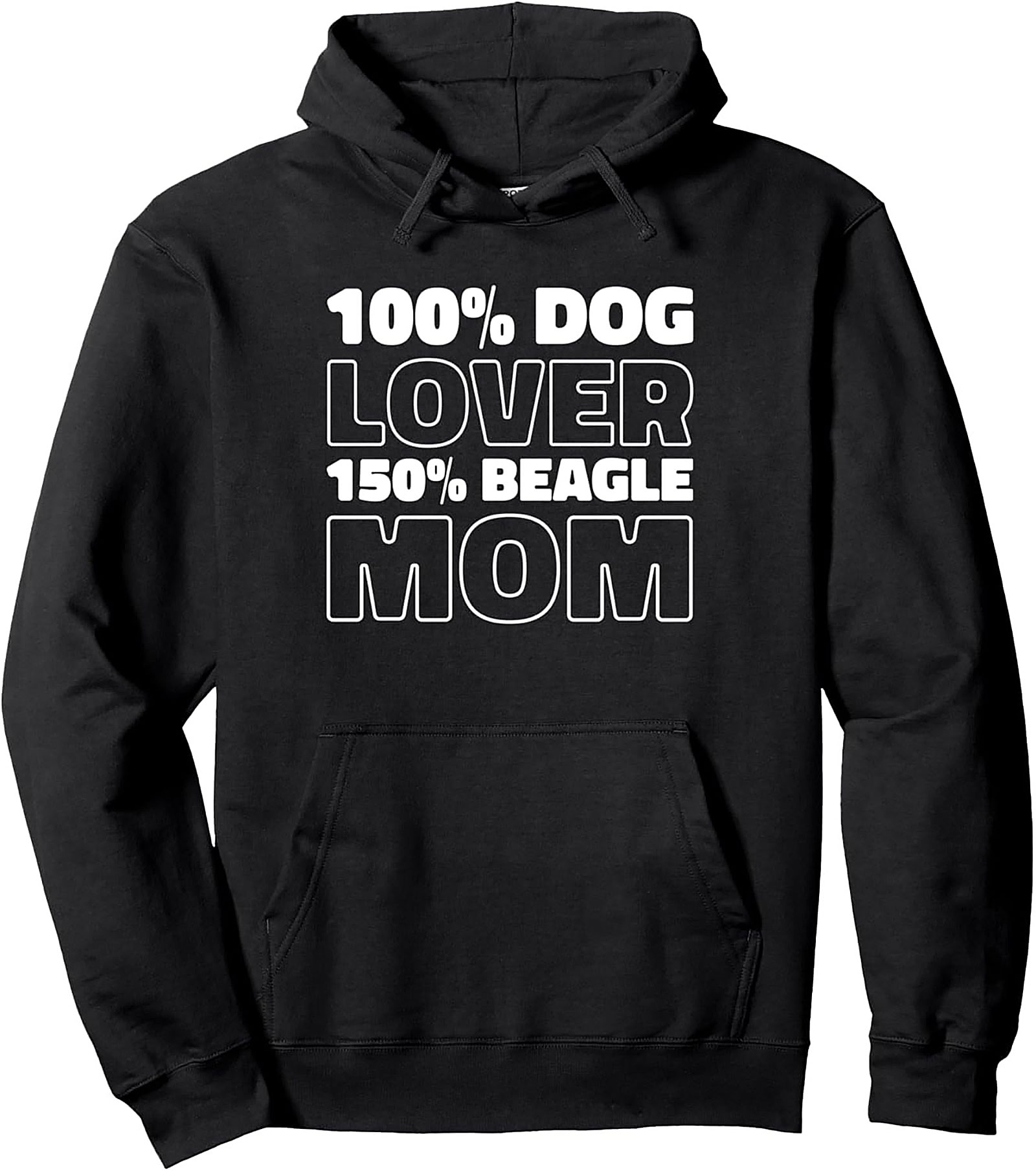


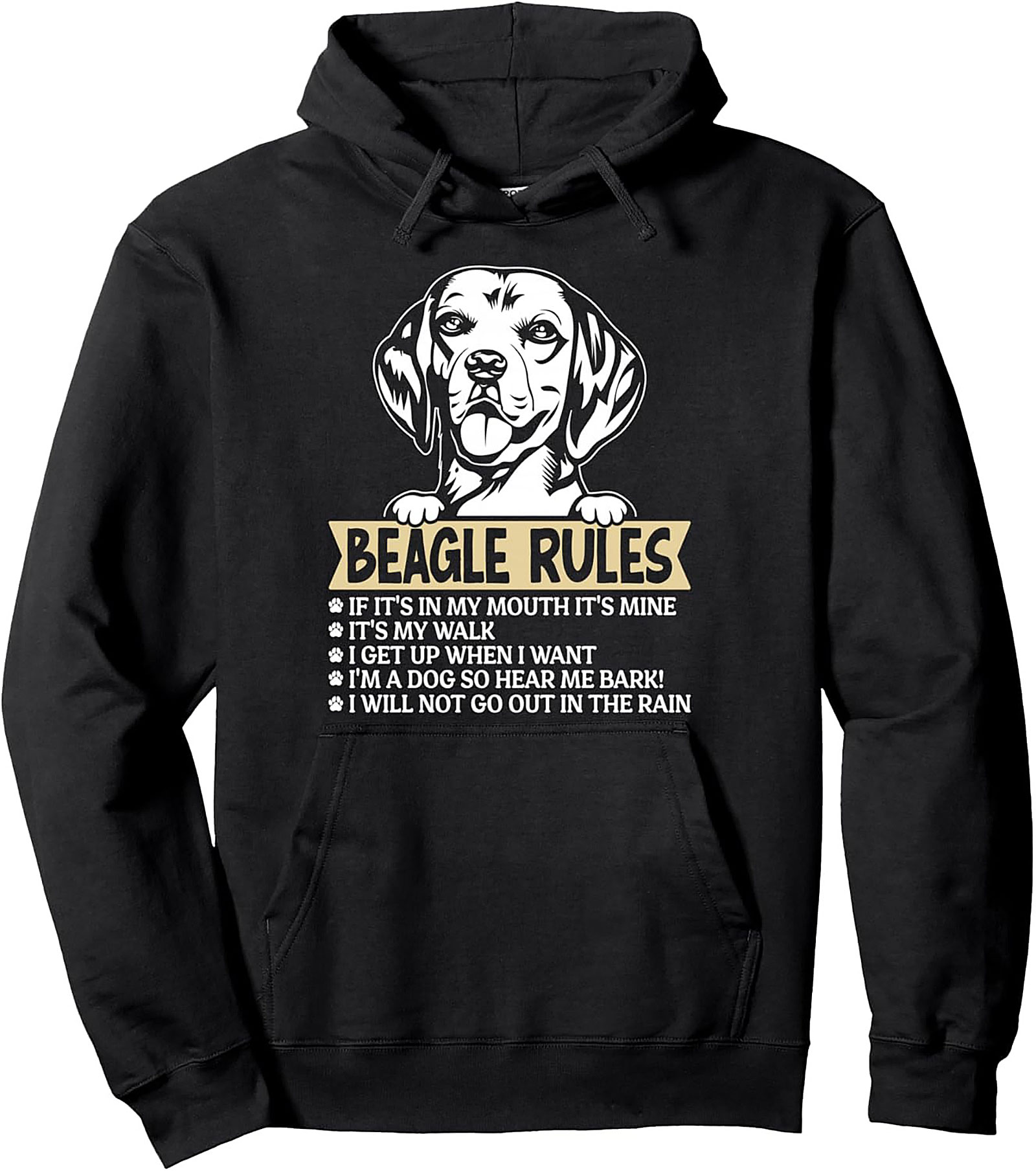



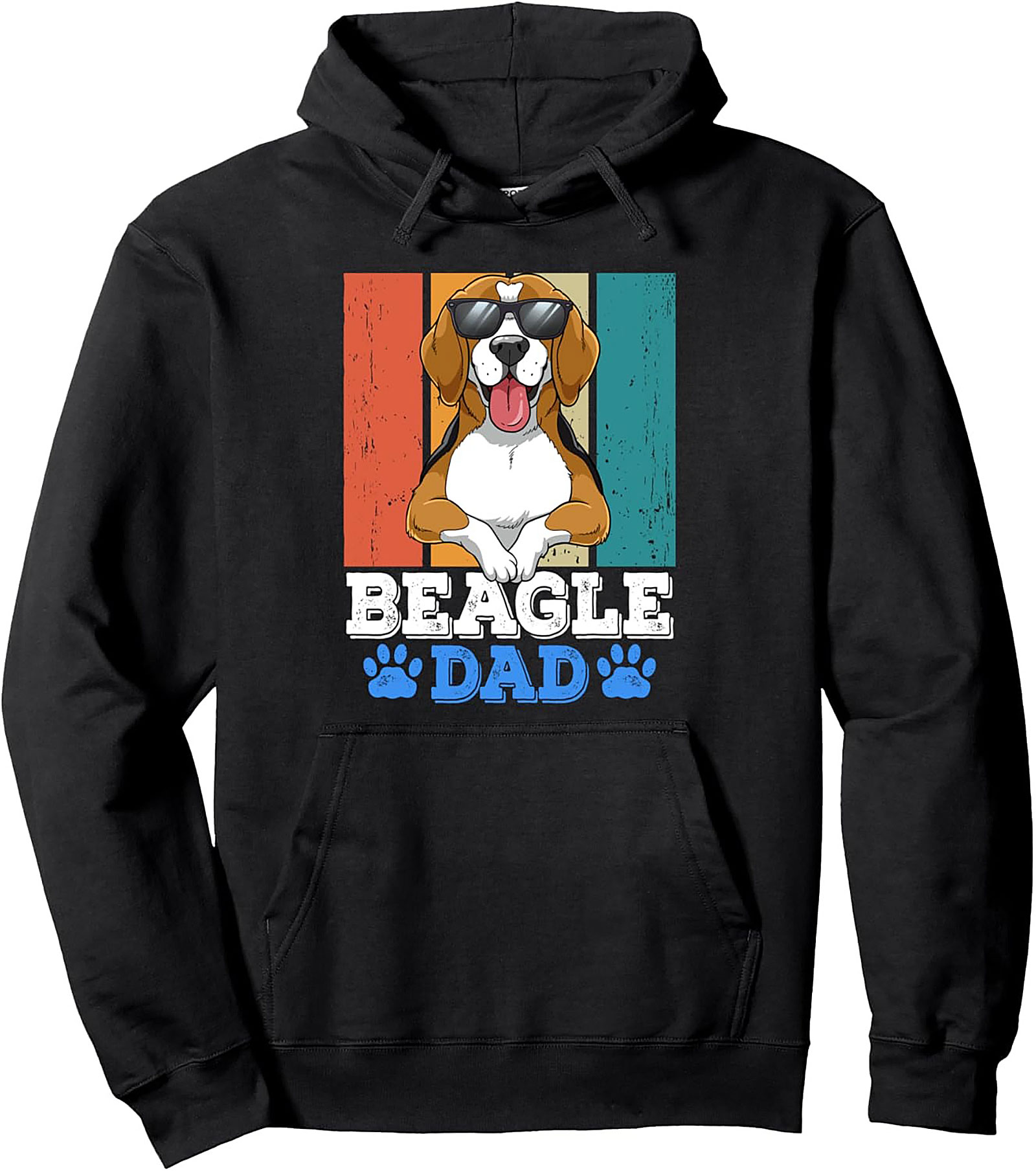











-d4c38c342cdf20ca.jpeg)


-b555fcc6b204c456.jpeg)




